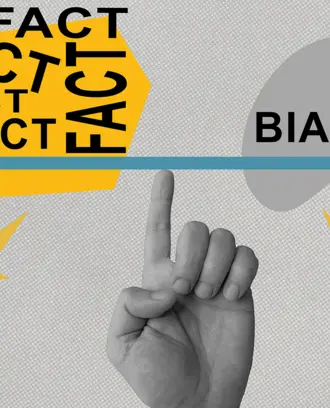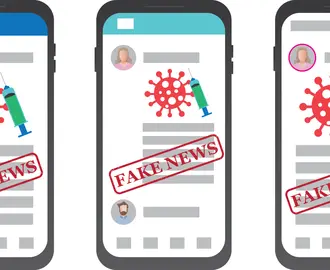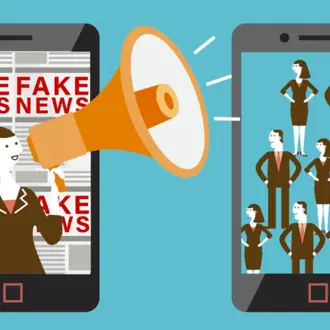Critical thinkers share higher quality content and information than intuitive thinkers
CAMBRIDGE, Mass., Feb. 11, 2021 – Social media has become a significant channel for social interactions, political communications, and marketing. However, little is known about the effect of cognitive style on how people engage with social media. A new study by MIT Sloan Research Affiliate Mohsen Mosleh, MIT Sloan School of Management Prof. David Rand, and their collaborators shows that people who engage in more analytical thinking are more discerning in their social media use, sharing news content from more reliable sources and tweeting about more substantial topics like politics.
“It’s important to understand how people interact on social media and what influences their decisions to share content and follow different accounts. Prior studies have explored the relationship between social media use and personality and demographic measures, but this is the first study to show the connection with cognitive style,” says Rand.
Mosleh, a professor at the University of Exeter Business School, explains, “In the field of cognitive science, some argue that critical thinking doesn’t have much to do with our daily life, but this study shows that it matters – critical thinkers are better able to use social media in meaningful ways, which has become an important part of modern life.”
In their study, the researchers measure Twitter-users cognitive style using the Cognitive Reflection Test (CRT), which is a set of questions with intuitively compelling but incorrect answers. For example, participants might be asked” If you are running a race and you pass the person in second place, what place are you in? The answer that intuitively comes to mind for many people is “first place,” however “second place” is the correct answer.
Mosleh points out that there is disagreement in the field of cognitive science about the relative roles of intuition and reflection in people’s everyday lives. Some say humans’ capacity to reflect is underused, and that critical thinking is mostly used to justify our intuitive judgments. Others maintain that critical thinking does have a meaningful impact on beliefs and behaviors and that it increases accuracy.
Their Twitter study confirmed that critical thinking has a significant impact on how users interact on social media. People in the sample who engaged in more cognitive reflection were more discerning in their social media use. They followed more selectively, shared higher quality content from more reliable sources, and tweeted about weightier subjects, particularly politics.
The researchers also found evidence of cognitive “echo chambers,” says Rand. “More intuitive users tended to follow similar types of accounts, which were notably avoided by more analytical users. They also tended to share content related to scams and sales promotions.”
He notes, “This study sheds light on how misinformation and scams are spread on social media, suggesting that lack of thinking is an important contributor to undesirable behavior. It also highlights the type of users at risk of falling for scams.”
As for the importance of cognitive style for everyday behaviors, Rand call this an “important new piece of evidence for the consequences of analytic thinking.”
Rand and Mosleh are coauthors of “Cognitive reflection correlates with behavior on Twitter,” along with MIT Research Associate Antonio Arechar and University of Regina Assistant Professor Gordon Pennycook,which was published in Nature Communications.
About the MIT Sloan School of Management
The MIT Sloan School of Management is where smart, independent leaders come together to solve problems, create new organizations, and improve the world. Learn more at mitsloan.mit.edu.




